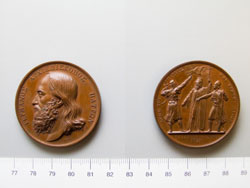My explanation was pathetic. Being so close to Europe in my heart and so heavily invested in all of it in my relationship, my work, and my future, it’s time to wise up and measure the doom.
From what I’ve parsed so far, everyone’s eager to avoid something even worse from happening; this is our default setting as human beings. Dealing with a huge deficit, Greece has been forced to accept terrible austerity measures to qualify for international loans. The loans will buy Greece time, not growth. More loans will be needed in coming months to ensure Greek solvency, but a declaration of default will probably come first. Holding a lot of Greek debt, Europe’s largest economies are eager to avoid losing their money. But it’s the possibility of this happening elsewhere, and contagion spreading around the Eurozone, where serious problems begin. The high cost of risk investors assigned to Italian state bonds in recent days is one sign of this.
In the best-case scenario, a problem remains. “If European monetary policy is run according to German national interests, huge structural imbalances will accumulate,” writes John Lancaster in the London Review of Books. In the worst case scenario, Portugal, Ireland, Italy, Greece, and Spain (the P.I.I.G.S.) will fail to recover at speed and Europe will relearn the meaning of suffering. But the demise of a continent does not inevitably follow from recent events, and commentators are too quick to link this crisis with the death of the European “project.” There are no boom-mongers.
Josef Joffe compared the state of Euroland to the American Civil War in the New Republic last month. The New York Times was more precise, but still over the top, saying in a recent editorial, "The survival of the common European Union currency, free movement across national borders and trans-Atlantic collective security are all in serious doubt.” Maybe this doom-mongering is actually a good thing, a way to motivate European politicians to act unselfishly for Europe, not for the short-term interests of their home nations.
But when Gordon Brown, the previous British PM, took to the pages of the New York Times with his fears that Europe is sleep-walking through the decline of the West, I got more worried. “If European growth continues to run so far behind its competitors, then by midcentury it may be as small as Africa,” he explained. His final worry, that economic problems will lead to social disorder and further anti-immigrant sentiment, is my worry too. I worry about that, and about the far-right exploiting it, not the image of the Euro losing some of its value, or European countries making their border-checks a little tougher. This old resilient continent is neither irrevocably doomed because of other continents’ growth, nor does inner turmoil make it terminally ill. Not boom or doom, but certain gloom.
